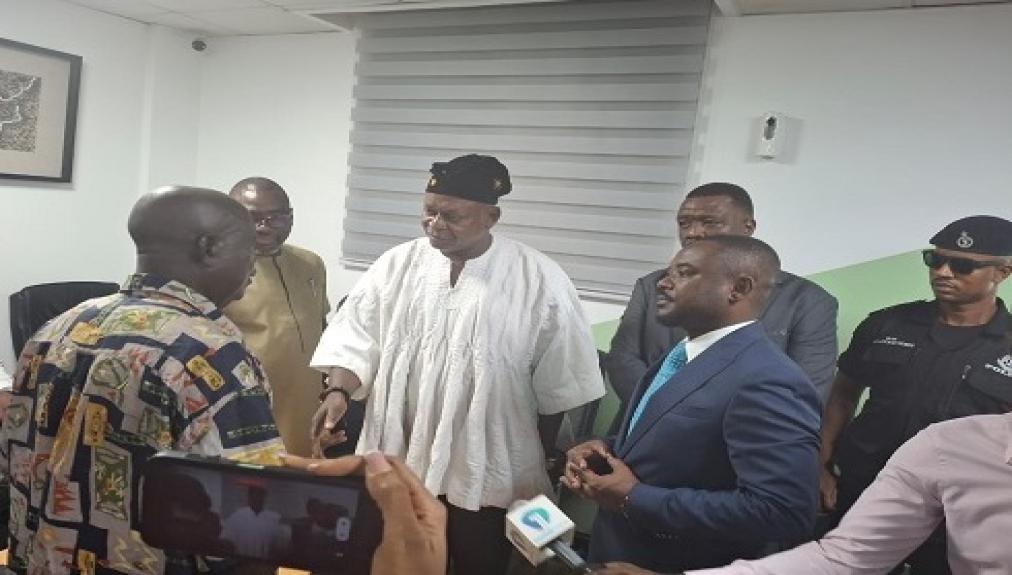


The Minister of Transport, Joseph Bukari Nikpe, has directed the Driver and Vehicle Licensing Authority (DVLA) to immediately begin the process of registering and licensing motorbikes for commercial use across the country.
He emphasized that legalising commercial motorbike operations—popularly referred to as okada—would ensure compliance with road safety regulations and help curb the alarming rate of motorcycle-related crashes and fatalities.
Speaking on his first official day in office, which included a working visit to the DVLA and other agencies under the Ministry of Transport, Mr. Nikpe—who also serves as Member of Parliament for Saboba—reiterated the importance of this move in reducing road indiscipline.
“Legalising okada will help reduce the recklessness we currently see on our roads,”
— Joseph Bukari Nikpe
In 2012, Parliament passed the Road Traffic Regulations, 2012 (L.I 2180) to regulate transport operations. However, it explicitly prohibits the use of motorbikes or tricycles for carrying fare-paying passengers under:
Regulation 128(1):
“The Licensing Authority shall not register a motorcycle to carry a fare-paying passenger.”
Regulation 128(2):
“A person shall not permit a motorcycle or tricycle under their control to be used for commercial purposes, except for courier and delivery services.”
Regulation 128(3):
“A person shall not ride on a motorcycle or tricycle as a paying passenger.”
Despite these prohibitions, enforcement has been weak, allowing the widespread and unregulated use of okadas.
The National Democratic Congress (NDC) promised in its 2024 manifesto to legalise okada operations. This new directive from the minister aligns with that pledge and signals the government's intention to revise L.I 2180 accordingly.
Following a closed-door meeting with DVLA management, Mr. Nikpe confirmed:
“We are committed to revising the law to allow okada riders to operate commercially. This meeting with DVLA is a step toward fulfilling that promise.”
He emphasized that okada riders must be properly licensed and trained to ensure safety for passengers and other road users.
The minister stated that he expects notable progress on legalisation by the end of the first quarter of the year.
Mr. Nikpe urged DVLA to:
Consolidate service delivery gains
Eliminate middlemen (locally referred to as goro boys)
Leverage technology for improved efficiency and transparency
“We should not have any connecting persons within DVLA. Technology must be used to serve the people better,” he stated.
Later that day, during a staff durbar under the Ministry of Transport, the minister promised to settle five months of unpaid salaries owed to staff from the former Ministry of Railway Development, now merged under the Transport Ministry.
He also pledged to:
Address promotional challenges
Improve general working conditions
Prioritize worker welfare as essential for better service delivery
“There’s a link between good working conditions and productivity. That will be my focus,”
— Mr. Nikpe
To further improve the transport sector, Mr. Nikpe announced plans to:
Decongest the roads
Enhance railway and air transport systems
Boost port infrastructure
“Once the 15 transport agencies are fully operational and properly coordinated, pressure on our roads will ease, making travel more efficient,” he noted.
He stressed the need for inter-agency coordination, eliminating overlaps and duplications, and called for unity beyond party lines in building a modern transport system for Ghana.
“We need a transport sector that befits the people of Ghana. Let’s set aside politics and work hard to build the Ghana we want.”
As part of his first-day activities, the Minister also visited several agencies, including the National Road Safety Authority, to get a first-hand assessment of their operations.
Souce : https://www.myjoyonline.com/